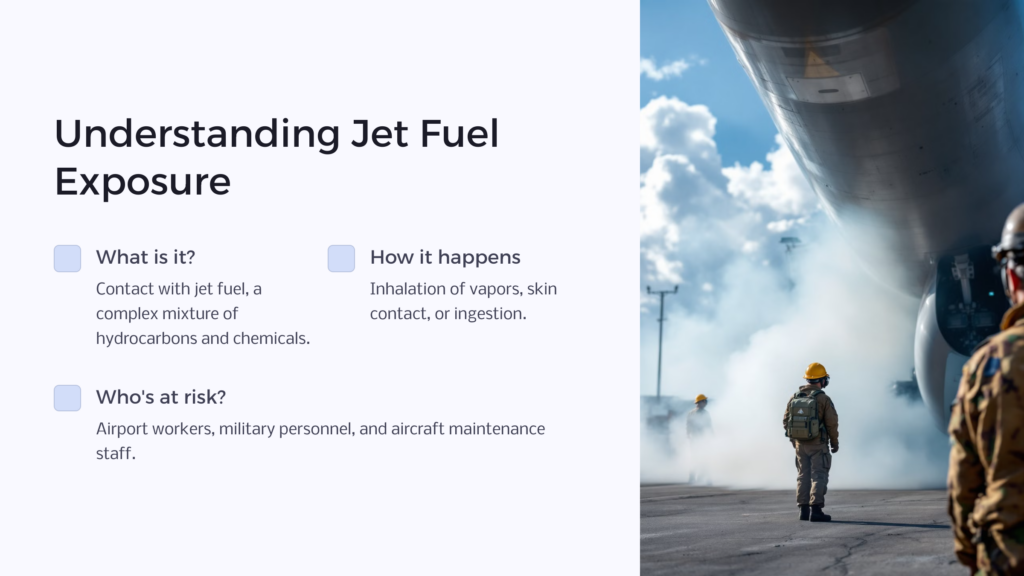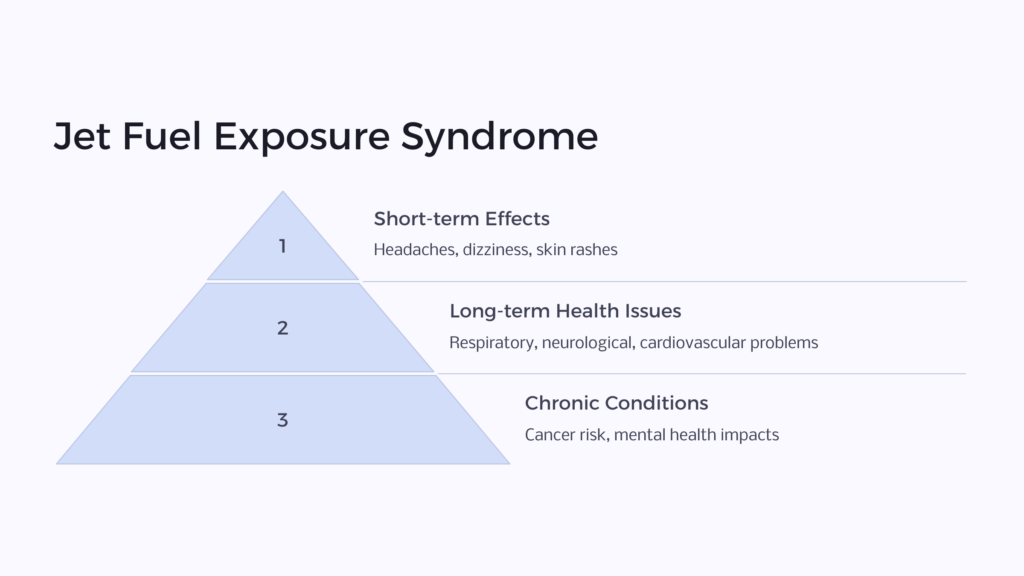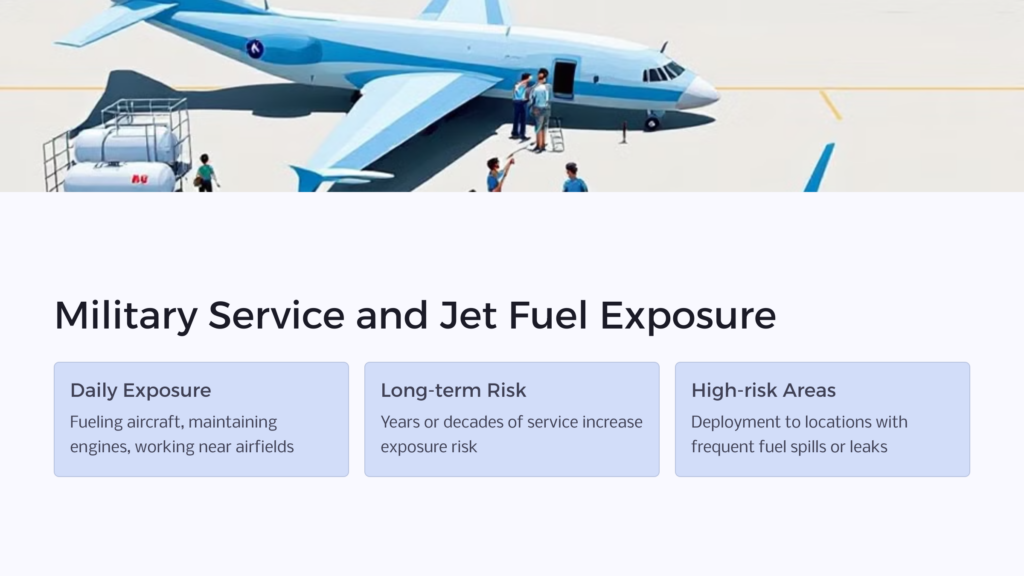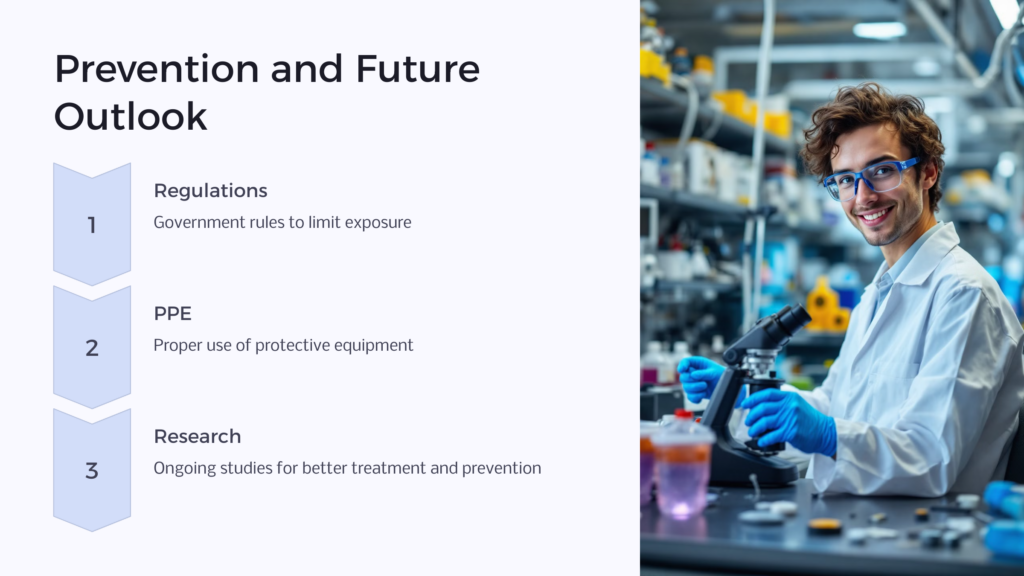Did you know that over 2 million military and civilian personnel per year are exposed to jet fuel? For those working around aircraft, the risk is constant because it’s being inhaled, ingested, or touches their skin. This is because jet fuel is a type of petroleum used to power aircraft that’s mixed with other chemicals.
Not only is it generally unhealthy, but toxic exposure to jet fuel can lead to something called Jet Fuel Exposure Syndrome. This is the term used when these exposures lead to health issues. If you are a veteran, it’s important to understand this condition and its effects. It’s not just about the immediate problems, but long-term health risks. This article is going to cover jet fuel exposure and its impact.
What is Jet Fuel Exposure?

First, we need to understand what jet fuel exposure is. Jet fuel exposure is what happens when someone comes into contact with jet fuel. It’s typically used in aviation to power aircraft, whether private or commercial. It’s made up of a complex mixture of hydrocarbons such as kerosene and other chemicals to enhance performance and stability.
Exposure can happen in several ways. It typically happens through inhaling the jet fuel vapor. This is a huge risk to those working in places where jet fuel is regularly used like airports, military bases, and aircraft maintenance facilities.
You can also be exposed to jet fuel through skin contact. If jet fuel spills on you, it can be absorbed through this skin which is why it’s important to always wear protective clothing. In rare cases, it can also get into food or water so you ingest it.
Short term exposure can cause immediate symptoms such as headaches, dizziness, and skin rashes. The real concern, however, is long term exposure. This happens when you’re continuously exposed to jet fuel for long periods of time. Jet fuel exposure can lead to health problems such as:
- Headaches
- Chronic health conditions
- Respiratory issues
- Neurological issues
- Cardiovascular issues
All of these issues fall under the umbrella term Jet Fuel Exposure Syndrome.
What is Jet Fuel Exposure Syndrome?

Jet Fuel Exposure Syndrome is the term used to describe the health issues that pop up from repeated exposure to jet fuel. It’s not just about one health issue, but encompasses various symptoms and long term health problems that are caused by toxic substances.
When you’re exposed to jet fuel regularly, the chemicals can build up inside your body. Over time, this leads to significant internal damage. For instance, if jet fuel vapor affects the respiratory system it can lead to chronic coughing, shortness of breath, and other lung problems. It can also impact the nervous system causing headaches, dizziness, memory problems, and even more severe issues.
One of the biggest concerns with Jet Fuel Exposure Syndrome is that the symptoms will often develop slowly, which makes it difficult to identify them. It could start as mild symptoms such as skin irritation that can turn into a more serious health issue such as cancer if left undetected. It can also have a psychological impact and contribute to mental health conditions like anxiety, depression, and cognitive decline.
For veterans, especially those who have served in roles that involve being around jet fuel, there is an increased risk for jet fuel exposure. The unfortunate thing is that the chronic nature of this syndrome means that it can continue to affect individuals long after they are exposed to it.
Symptoms of Jet Fuel Exposure
These are the key symptoms you may experience at different levels of exposure concentrations. It’s important to be on the lookout if you have spent time working around jet fuel or other toxic substances.
Short Term Exposure
Immediate exposure to jet fuel can cause a range of symptoms. This could be headaches, dizziness, nausea, or skin irritation. It can also affect the eyes, nose, and throat.
Long Term Exposure
The long-term effects are much more serious. Prolonged exposure can cause or lead to an increased risk of respiratory problems, neurological issues, and even cancer. The chemicals in jet fuel can build up in the body over time to lead to chronic health problems you won’t be able to get rid of.
Industry-specific Cases
Those who work in aviation are at the highest risk. This includes pilots, ground crew, and maintenance staff. Anyone working near an aircraft using jet fuel is going to be at some sort of risk because they are exposed daily, sometimes for years. The symptoms can vary depending on the exposure concentrations and durations. For some, the effects start right away. For others, symptoms don’t manifest for years.
Implications for Military Service and Jet Fuel Exposure

Military service often involves working in environments where jet fuel is always around. For many veterans, especially those in the Air Force, exposure to jet fuel happens daily. This can be due to fueling aircraft, maintaining engines, burn pits, or just being around active airfields. These service members are most at risk for Jet Fuel Exposure Syndrome.
Why Veterans are at Risk for These symptoms
Veterans are at a particularly high risk for developing symptoms due to the nature of the work. Considering many veterans are older, safety measures may not have been as strict or as well-enforced as they are now. Service members would often have prolonged and repeated exposure to jet fuel without adequate protective gear or proper ventilation.
Not only that, but many veterans spent years, if not decades in these positions. As we mentioned the effects of jet fuel accumulate over time, This leads to more severe conditions years after exposure. With that being said, it can be difficult for veterans to connect their current health issues to their time in the service.
The military service also involves deployment to high-risk areas which can make exposure worse. In some cases, veterans were stationed at military aircraft bases where fuel spills or leaks were common. They would also be stationed in places where the conditions made it difficult to avoid inhaling fumes. This consistent exposure, combined with the physical and mental demands of military service, increases the likelihood of developing long-term health issues.
Does the VA recognize Jet Fuel Exposure as Valid for VA Disability Benefits?
For veterans who have been exposed to jet fuel, we have good news. The VA does recognize the potential health impacts of jet fuel exposure. The issue is that the VA disability claim process can be complicated.
Veterans looking for disability compensation will have to provide evidence that their health issues are directly connected to their military service and the exposure they experienced. This often requires detailed medical records, service history documentation, and sometimes expert testimony linking the exposure to health conditions. In recent years, there has been growing awareness of the health risks associated with jet fuel exposure, and the VA has been under increased pressure to acknowledge these risks more fully.
Preventing Jet Fuel Exposure

Government Regulations
There are government regulations in place to limit exposure to jet fuel. These rules are meant to protect those who work around jet fuel. These regulations must be followed strictly in order to protect those working with dangerous materials.
Personal Protective Equipment
Personal protective equipment (PPE) is vital for preventing jet fuel exposure. Masks, gloves, and protective clothing can reduce exposure. Proper use, storage, and maintenance of this equipment are key to its effectiveness.
Advancements in Treatment & Prevention
When it comes to jet fuel exposure prevention, research is ongoing. New treatments and prevention methods are currently being developed. This includes better PPE and new ways to detoxify the body after exposure. The future looks promising, but more work is needed.
The Importance of Awareness and Prevention
Knowledge is power. Knowing and understanding the risks can lead to better prevention. Those at risk should take every precaution. Explorers should enforce regulations and provide proper PPE. Early detection of symptoms can also lead to better outcomes.
Future Outlook
Looking ahead, more research and better regulations are needed. Those at risk must stay informed. Society must also recognize the importance of protecting those who work around jet fuel.
Applying for Compensation from the VA
If you’re a veteran who has been exposed to jet fuel, you may be entitled to VA Disability benefits. Take our quiz at Benefits.com to find out what you qualify for. It’s the first step toward getting the help you need.
 Benefits.com Advisors
Benefits.com Advisors
With expertise spanning local, state, and federal benefit programs, our team is dedicated to guiding individuals towards the perfect program tailored to their unique circumstances.
Rise to the top with Peak Benefits!
Join our Peak Benefits Newsletter for the latest news, resources, and offers on all things government benefits.





















